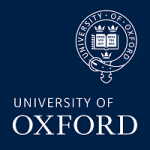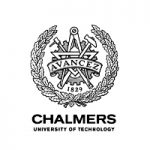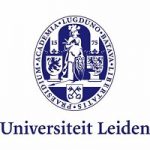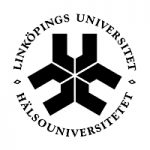项目介绍
About the course
The department researches the interaction of light and matter over an enormous range of conditions, from high-energy plasmas created by the most powerful lasers in the world, to the coherent manipulation of single quantum particles for implementing quantum information processing, to the creation of exotic states of quantum matter such as Bose-Einstein condensation.
Research in atomic and laser physics (ALP) involves some of the most rapidly developing areas of physical science and ranges from the fundamental physics of quantum systems to interdisciplinary application of lasers. The themes include the following, using both experiment and theory:
- quantum computation
- quantum cryptography
- quantum chaos
- quantum memories
- optical manipulation of cold atoms and molecules
- ultra-cold matter
- Bose-Einstein condensations
- optical lattices and quantum simulations
- ions traps and entanglement
- non-linear optics
- cavity quantum electrodynamics
- quantum optics
- high-intensity laser interactions
- ultra-fast X-ray science
- laser-plasma science
- attosecond optics
- optical metrology and precision spectroscopy
- fundamental tests of QED
- femtosecond combs
- EPR and NMR for QIP
- laboratory astrophysics
At graduate level, the department primarily offers the DPhil research degree (equivalent to a PhD). In very exceptional cases, it may be possible to do an MSc by Research in Atomic and Laser Physics. There is no graduate taught master’s course in ALP.
The DPhil is a research degree and you normally start working on your main research project as soon as you arrive. A list of current projects is available on the ALP website.
In parallel with your project, you will be expected to attend a taught course in atomic and laser physics in the first year, comprising lectures, seminars and discussion classes at graduate level. Depending on your level of knowledge, the department may also require you to attend lectures in the final year (master’s-level) undergraduate course at Oxford.
The ALP sub-department provides a detailed timetable and syllabus list for the graduate class. Topics covered include:
- basic light-matter interaction
- photonics and quantum optics
- laser-plasma interactions
- quantum information processing and communication
- trapped particles and quantum gases
- high energy density science
Some subjects, such as laser-plasma interactions and high energy density science, are taught across a number of sub-departments.
In addition, the sub-department’s journal club focuses on recent research highlights in atomic and laser physics, quantum technologies, and laser-plasma interactions. Active participation is compulsory for first year graduate students. Many other opportunities exist to attend training courses outside the sub-department.
Supervision
For this course, the allocation of graduate supervision is the responsibility of the Department of Physics and it is not always possible to accommodate the preferences of incoming graduate students to work with a particular member of staff. Under exceptional circumstances, a supervisor may be found outside the Department of Physics.
Students should expect to interact with supervisors regularly, eg weekly or, in some cases, monthly.
Assessment
Continuation beyond the first year is dependent on successful participation in the graduate course and on original research documented by a written report. Examination of the research element is by viva at the end of the first year.
Graduate destinations
A large number of former ALP graduate students now pursue careers in either academia or industry, predominantly focusing on research and development.
Changes to this course and your supervision
The University will seek to deliver this course in accordance with the description set out in this course page. However, there may be situations in which it is desirable or necessary for the University to make changes in course provision, either before or after registration. The safety of students, staff and visitors is paramount and major changes to delivery or services may have to be made in circumstances of a pandemic (including Covid-19), epidemic or local health emergency. In addition, in certain circumstances, for example due to visa difficulties or because the health needs of students cannot be met, it may be necessary to make adjustments to course requirements for international study.
Where possible your academic supervisor will not change for the duration of your course. However, it may be necessary to assign a new academic supervisor during the course of study or before registration for reasons which might include illness, sabbatical leave, parental leave or change in employment.
For further information please see our page on changes to courses and the provisions of the student contract regarding changes to courses.
录取要求
-
a first-class or strong upper second-class undergraduate degree with honours in physics, mathematics or related fields. The equivalent of a UK four-year integrated MPhys or MSci is typically required. Bachelor’s degrees with a minimum four years’ standard duration may also satisfy the entry requirements.
-
Entrance is very competitive and most successful applicants have a first-class degree or the equivalent. In exceptional cases, the requirement for a first-class or strong upper second-class undergraduate degree with honours can be alternatively demonstrated by a graduate master’s degree or substantial directly-related professional or research experience.
联系方式
电话: +44 1865 270000相关项目推荐
KD博士实时收录全球顶尖院校的博士项目,总有一个项目等着你!






